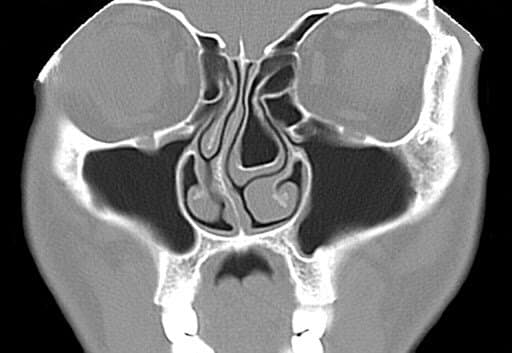ENT Tips for Singing with Nasal Congestion: Keep Your Voice Strong During Sinus Issues
Nasal congestion can feel like a singer’s ultimate nemesis. Whether you’re preparing for an important performance or heading into rehearsal, stuffy sinuses have the power to change your voice and undermine your confidence. The good news is that understanding how nasal congestion affects your singing is the first step toward managing these challenges effectively. With the right ENT (ear, nose, and throat) tips, practical strategies, and a little self-care, you can control nasal congestion while keeping your voice vibrant and strong. In this post, we’ll explore the science behind congestion, how it impacts your singing, and the best remedies to help you shine—no matter what’s going on inside your sinuses.
Understanding Nasal Congestion and Its Impact on Singing
What Happens When You Sing with Nasal Congestion?
If you’ve ever tried singing with a blocked nose, you already know how dramatically your voice can change. Nasal congestion affects vocal resonance—the vibrations that give your voice both fullness and brightness—which is crucial for a rich, clear tone. When your sinuses are swollen and blocked, airflow through the nasal passages decreases significantly, limiting the use of nasal resonance to brighten your sound.
Imagine trying to sing with a pillow pressed against your face: the sound muffles, clarity diminishes, and your voice feels trapped. Many singers instinctively push harder to compensate, often leading to vocal strain and fatigue. Over time, this strain can jeopardize your vocal health and make performances feel exhausting rather than exhilarating. Maintaining healthy nasal resonance is especially vital for styles that rely on bright, ringing tones, such as classical or pop singing.
Common Symptoms of Nasal Congestion for Singers
Singers frequently report experiencing several telltale symptoms during congestion episodes:
- A persistently stuffy or runny nose
- Post-nasal drip, where mucus trickles down the back of the throat, sometimes causing coughing or throat clearing
- A sensation of sinus pressure or fullness in the face, which can feel uncomfortable or distracting
- Hoarseness or a muffled quality to the voice that impacts tone and clarity
- Difficulty breathing through the nose, particularly during extended singing sessions when breath control is paramount
- A frequent feeling of mucus build-up in the throat that hampers clean vocal production ([1],[2])
Being aware of these symptoms helps you recognize when congestion is creeping into your singing and allows you to take early action to protect your voice before significant damage or fatigue occurs.
Causes of Nasal Congestion in Singers
Allergies and Sinus Infections
Most often, nasal congestion in singers is caused by allergies. Common triggers include seasonal pollen, dust mites, mold spores, and pet dander. These allergens inflame and irritate the nasal linings, causing them to swell and produce excess mucus that blocks airflow. For singers working or performing in environments prone to allergens—like dusty theaters, outdoor festivals during pollen season, or homes with pets—the risk is higher.
Sinus infections, which can be bacterial or viral, produce symptoms similar to allergies but often involve more pronounced inflammation, thicker mucus, and sometimes fever. These infections can last longer and may require targeted treatments such as decongestants, and in the case of bacterial infections, antibiotics ([2],[3]).
Acid Reflux and Its Influence on Sinuses
Acid reflux can contribute to irritation of the throat and nasal passages, sometimes worsening congestion and affecting vocal clarity by causing swelling and increased mucus production. Managing acid reflux is essential for singers, especially those prone to sinus inflammation or who experience recurrent congestion despite other treatments.
Impact of Singing Technique on Sinus Health
Your singing technique can significantly affect sinus comfort. In some cases, poor control of the soft palate—such as excessive reliance on nasal resonance, sometimes called “over-nasalization”—may contribute to vocal fatigue or discomfort, though congestion itself typically arises from physical causes ([1]). For example, habitually singing with your nose blocked or trying to “force” nasal sounds may increase pressure and mucus production in your sinuses. Conversely, a balanced technique that incorporates proper breath support, soft palate elevation, and controlled resonance reduces strain and helps maintain sinus comfort.
Effective Treatments and Remedies for Singers with Nasal Congestion
Hydration: The First Line of Defense
One of the simplest, yet most powerful, remedies for congestion is hydration. Drinking plenty of water thins mucus, making it easier for your sinuses to drain naturally and for your voice to remain flexible and responsive. Many vocal coaches suggest that well-hydrated vocal folds may produce richer tones and resist fatigue better. Carrying a water bottle everywhere and sipping frequently—especially before and during singing sessions—is a habit every singer should develop.
Steam Inhalation and Saline Nasal Rinses
Steam inhalation has long been a trusted ally for singers battling congestion. Breathing in warm, moist steam loosens thick mucus and soothes irritated nasal passages, helping to open up the airways before rehearsal or performance. Similarly, saline nasal rinses—using a neti pot or a saline spray—gently flush out excess mucus and allergens. These rinses can reduce swelling and improve airflow, providing clear nasal passages and less post-nasal drip ([3],[4]). Many singers keep these remedies part of their pre-performance routine for a quick, natural boost.
Those who are pregnant or have respiratory conditions such as asthma should consult a healthcare provider before beginning steam therapy.
Vocal Warm-Up Exercises for Congestion Relief
Not all warm-ups are created equal when you’re congested. Gentle humming and lip trills are excellent because they engage your vocal cords softly, stimulate sinus vibrations, and encourage mucus clearance without adding strain. For example, humming “mmm” sounds or blowing bubbles through a straw in water—a technique known as “straw phonation”—can help balance airflow and resonance. Some singers report that a congestion-focused warm-up routine can transform their singing sound on challenging days, helping to maintain tone even amidst sinus discomfort ([1],[4]).
Avoiding Vocal and Nasal Irritants
Certain lifestyle factors can exacerbate sinus and vocal issues. Alcohol consumption, smoking, and exposure to irritants such as dust, perfumes, and cleaning chemicals increase inflammation and dry out the mucous membranes, making congestion worse. Even dry, heated environments common in many rehearsal spaces can sap moisture from your sinuses, leading to irritation and mucus thickening. Singers who actively minimize these exposures often report quicker recovery times and fewer flare-ups.
Use of Over-the-Counter Medications
Over-the-counter options such as saline sprays are safe and effective for regular use, providing gentle relief by moisturizing and clearing nasal passages. Medicated nasal sprays like oxymetazoline can produce rapid decongestant effects but must be used with caution — only for short periods (typically no more than three days) — to avoid rebound congestion, which can worsen symptoms over time ([4]). If congestion or vocal symptoms persist beyond typical durations, a consultation with an ENT specialist is advised before continuing or starting medications.
When to See an ENT Specialist
Persistent hoarseness, severe sinus pain, or congestion that doesn’t improve with home remedies are clear signs it’s time to see an ENT. Underlying conditions such as nasal polyps, chronic sinus infections, or allergic rhinitis may require more tailored medical interventions like prescription medications, allergy testing, or even minor procedures ([2]). Early evaluation by an ENT ensures your singing voice is preserved and supported with the most effective, personalized treatment options.
Lifestyle Tips for Maintaining Healthy Singing and Sinuses
Managing Allergies Year-Round
For singers with seasonal or perennial allergies, reducing exposure to triggers in your home and rehearsal space goes a long way in preventing congestion. Investing in HEPA air filters, using hypoallergenic bedding, and maintaining a regular cleaning schedule to reduce dust and dander buildup can markedly improve sinus comfort. Simple measures like removing shoes indoors and washing hands frequently also reduce allergen exposure.
Maintaining Vocal Health Alongside Sinus Care
Vocal health and sinus care go hand in hand. Scheduling vocal rest days is essential when your voice feels tired or congested. Adopting an anti-inflammatory diet rich in fruits, vegetables, and omega-3 fatty acids supports reduced mucus production and less inflammation. Likewise, avoiding common reflux triggers—such as spicy foods, caffeine, and late-night eating—helps manage sinus and throat irritation. Collaboration with a vocal coach knowledgeable about sinus issues can ensure your singing technique supports both voice and sinus health.
Incorporating Mindful Breathing Techniques
Mindful breathing exercises do more than calm your mind; they improve airflow through partially congested nasal passages. Practices like alternate nostril breathing help balance airflow and oxygen exchange, promoting natural sinus drainage. Gentle “sniff and exhale” drills can also encourage clearance of mucus without adding stress to the vocal folds. These techniques foster a deeper connection between breath control and sinus sensation, empowering you to sing more comfortably despite congestion.
Frequently Asked Questions (FAQs)
Can I still perform if I have nasal congestion?
Singing with mild congestion is often possible by employing gentle technique and extended warm-ups. However, if your voice feels strained or hoarse, or if symptoms like severe sinus pressure are present, resting your voice is the best course. Trust your body’s signals and prioritize vocal health—your long-term voice quality depends on it.
What singing techniques help reduce sinus pressure?
Techniques emphasizing strong breath support and controlled soft palate elevation are key. Gentle humming, lip trills, and straw phonation not only facilitate better resonance but also help relieve the sensation of sinus pressure by promoting airflow and vibration.
How long does sinus-related congestion typically affect singing?
Viral congestion usually lasts about 7–10 days, while allergy-induced symptoms may persist throughout allergy seasons or recur regularly. If your congestion or voice hasn’t improved in two weeks, or if symptoms worsen, consult an ENT to check for underlying problems.
Are steam inhalations safe for daily use?
For most people, steam inhalation is safe when practiced with care. Limit each session to 10–15 minutes, no more than once or twice a day, and avoid very hot steam to prevent burns or respiratory irritation. Those who are pregnant or have respiratory conditions such as asthma should consult a healthcare provider before beginning steam therapy.
Can acid reflux treatments improve sinus symptoms for singers?
Yes. Effective management of acid reflux—via dietary modifications, lifestyle adjustments, and sometimes medication—can significantly reduce irritation in the throat and sinuses. This often leads to clearer nasal passages, less congestion, and improved vocal clarity ([2]).
Conclusion
While nasal congestion is a common hurdle for singers, it doesn’t have to hold you back. By understanding the connection between your sinuses and your voice, you can take proactive steps to keep your instrument healthy and resilient. From mindful hydration and smart warm-ups to environmental control and knowing when to seek ENT care, every measure adds up to stronger performances—even when sinus issues threaten your sound. Remember, vocal health is a journey, not a destination. Stay attentive, practice gentle techniques, and never hesitate to seek professional help. With these ENT-inspired tips on your side, you’ll keep shining strong—rain or shine!
References
- John Henny Vocal Studio, How to Not Sound Congested When Singing, johnhenny.com
- ENT and Allergy Associates, How Singers Deal with the Common Cold, entandallergy.com
- Cari Cole, 5 Natural Remedies and Methods for Singers to Reduce Congestion and Phlegm, caricole.com
- Rapid Vocal Results, How Sinus Issues Can Impact Your Singing and How to Manage Them, rapidvocalresults.com
Struggling with nasal congestion and singing? Consider booking an appointment with an ENT specialist to get personalized advice tailored to your voice and sinus health needs. Your voice—and your audience—will thank you!
Schedule your appointment today at Sleep and Sinus Centers
This article is for educational purposes only and is not medical advice. Please consult a qualified healthcare provider for diagnosis and treatment.
```
Don’t let allergies slow you down. Schedule a comprehensive ENT and allergy evaluation at Sleep and Sinus Centers of Georgia. We’re here to find your triggers and guide you toward lasting relief.





